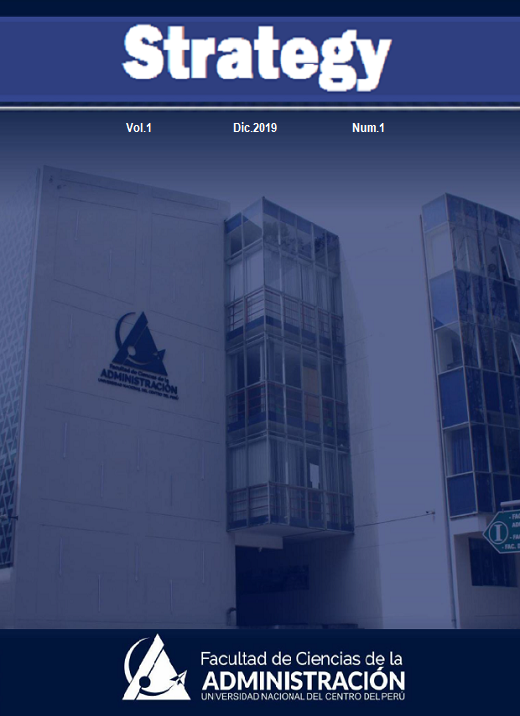Epistemology and methodology of administration research in peruvian universities
DOI:
https://doi.org/10.26490/st.v1i1.717Keywords:
Administration, Epistemology, Research MethodologyAbstract
Despite the diversity of epistemological and methodological traditions in the social sciences in general and in the sciences of administration in particular, some institutions of higher education in Peru maintain a positivist approach centered on quantitative approaches. In this perspective, the research question asks; What paradigms, approaches, methods, general strategies and techniques are used in research in administration and management at universities in Lima and Junin?. From it, it is intended to analyze and characterize the prevailing paradigms, approaches, methods and general strategies and techniques used in research in administration and management at universities in Lima and Junín.
Using the mixed approach, through content analysis and the use of statistics, research has found that; a) a variety of epistemological paradigms have been used in conducting research, with prevalence of the post-positivist paradigm over other epistemological positions, b) With respect to research methods, there is evidence that the theses in the Faculty of Sciences of the Administration of the UNCP mentions the greatest number of methods used and the greatest methodological variety, c) At the level of the 6 universities, the quantitative approach prevails compared to the other approaches with a relative frequency of 44%, corroborating the Post Positivist position in the research for degree, d) The most used strategies are the case study in 45% of the theses, the Observational in 42%, the Grounded Theory in 8% of the theses and the triangulation and the experimental strategy in the 2 % of theses each, applying in the PUCP the greatest diversity of strategies, e) It has also been found that the survey is the most commonly used technique a to collect data with a frequency of 47%, followed by an in-depth interview with 22%; f) Descriptive analysis is the most used data analysis technique followed with 44%.
Downloads
References
Aldana de Becerra, G. M. (2008). Enseñanza de la investigación y epistemología de los docentes. Educación y educadores, 61-68.
CEPLAN. (2011). Plan Bicentenario. Lima: CEPLAN.
Denzin, N. K., & Lincoln, Y. S. (2005). Qualitative Research. London: SAGE Publications.
GRADE. (Mayo de 2012). Estudio de demanda por profesionales universitarios. Estudio de demanda por profesionales universitarios. Lima, Lima, Perú.
Hernández Sampieri, R., Fernández Collado, C., & Baptista Lucio, M. D. (2010). Metodología de la investigación. México: McGraw-Hill.
Marín-Idárraga, D. A. (2012). Consideraciones epistemológicas en torno al carácter científico de la administración. Innovar, 39 - 52.
Mendoza, J. (2018). Epistemología de la administración: objeto, estatuto, desarrollo disciplinar y método. Pensamiento y gestión, 211238.
Morin, E. (1994). Introducción al pensamiento complejo.
Ríos Estrada, R. S. (10 de 2011). La investigación en administración: Una caracterización de las tesis de administración de maestría en el Instituto Politécnico Nacional (2005-2009). La investigación en administración: Una caracterización de las tesis de administración de maestría en el Instituto Politécnico Nacional (2005-2009). México, México.
Rodríguez Gomez, D., & Valldeoriola Roquet, J. (s.f.). Metodología de la investigación. Catalunya: UOC.
Taylor, S. J., & R., B. (1992). Introducción a los métodos cualitativos de investigación. España: PAIDOS. WEF, W. E. (2017). Informe Global de Competitividad 2017 - 2018. WEF.








